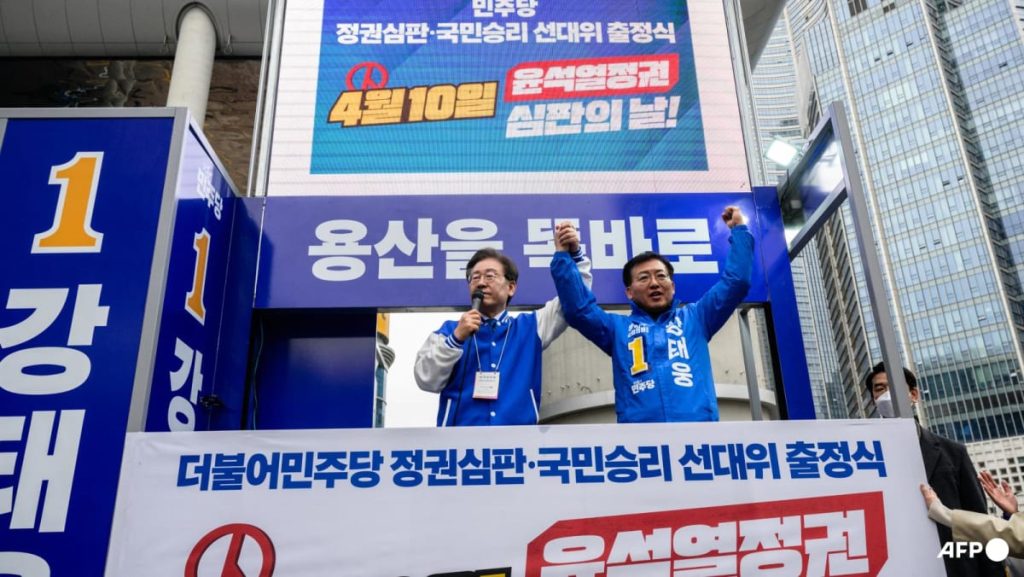of Yoon’s People Power Party vowed to prioritize economic recovery, public safety, and national security in their campaign promises. The opposition parties, including the progressive Democratic Party and minor conservative parties, are focusing on issues such as income inequality, housing affordability, and climate change.
The general election is seen as a crucial test for President Yoon, who took office in May after winning a close race against the previous liberal government. Yoon’s administration has faced challenges in its first year, including a struggling economy, rising inflation, and ongoing tensions with North Korea. The outcome of the election will determine the level of support Yoon has in the National Assembly, where his party currently holds a slim majority.
The People Power Party is hoping to secure a strong mandate from voters to push through their policy agenda, which includes tax cuts, deregulation, and increased defense spending. They are also working to improve relations with neighboring countries, including China and Japan, in order to promote regional stability and economic cooperation. Yoon’s leadership style, which has been described as pragmatic and assertive, has garnered both praise and criticism from the public.
On the other hand, the opposition parties are aiming to capitalize on public dissatisfaction with the government’s handling of the pandemic and economic recovery. They are promising to increase social welfare programs, address income inequality, and promote sustainable development to address pressing environmental concerns. The Democratic Party, in particular, is hoping to win back control of the National Assembly in order to block Yoon’s conservative agenda and push through their own policy initiatives.
The campaigning period leading up to the general election is expected to be intense, with candidates vying for support from a diverse electorate. Issues such as youth unemployment, healthcare access, and education reform are likely to feature prominently in campaign speeches and debates. The outcome of the election will not only shape the future direction of South Korea’s domestic and foreign policy but also reflect the changing political landscape in the country.
As South Korea prepares to head to the polls in April, the stakes are high for both the ruling party and the opposition. The election will serve as a referendum on President Yoon’s leadership and will determine the balance of power in the National Assembly. Voters will have the opportunity to choose between competing visions for the country’s future, with implications for economic growth, social welfare, and national security. The campaign season promises to be spirited and contentious as parties seek to mobilize support and sway undecided voters in a closely contested race.















